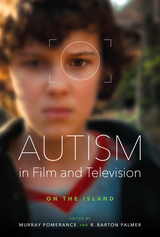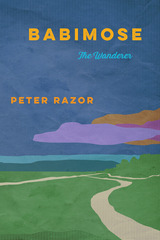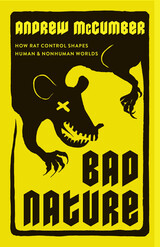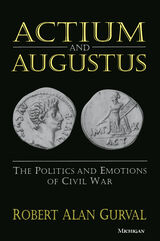
Actium and Augustus marks a turning point as well. Robert Alan Gurval's unusual approach is to examine contemporary views of the battle and its immediate political and social consequences. He starts with a consideration of the official celebration and public commemoration of the Actian victory and then moves on to other questions. What were the "Actian" monuments that Octavian erected on the battle site and later in Rome? What role did the Actian victory play in the political formation of the Principate and its public ideology? What was the response of contemporary poetry? Throughout, this volume concentrates on contemporary views of Actium and its results.
Written to include the general reader, Actium and Augustus presents a thoughtful examination of a complex period. All Greek and Latin quotations are translated, and extensive illustrations present graphic evidence about the issues Romans faced.
Robert Alan Gurval is Associate Professor of Classics, University of California, Los Angeles, and has been a recipient of the Rome Prize awarded by the American Academy in Rome.
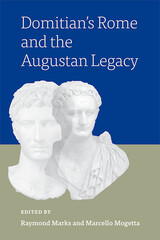
The legacy of the Roman emperor Augustus and the culture of his age was profound and immediately evident after his death in 14 CE. His first four successors based their claims to rule on kinship with him, thus establishing the Julio-Claudian dynasty (14–68 CE), and plied an evolving form of the Principate, the political arrangement Augustus carved out for himself. His building and restoration programs gave the city an “Augustan” appearance that remained relatively unchanged throughout subsequent reigns. And, among literary luminaries of his age, figures such as Horace and Ovid left an indelible mark on the poetic practices of future generations while Virgil insinuated himself still more deeply into the Roman psyche. But it was after the reigns of Augustus’ own descendants, oddly enough, that we witness the most spirited and thoroughgoing engagement with the Augustan past; during the reign of the emperor Domitian, the third and last ruler of the subsequent Flavian dynasty (81–96 CE), there was a veritable Augustan renaissance.
This volume represents the first book-length treatment of the reception of Augustus and his age during the reign of Domitian. Its thirteen chapters, authored by an international group of scholars, offer readers a glimpse into the fascinating history and culture of Domitian’s Rome and its multifaceted engagement with the Augustan past. Combining material and literary cultural approaches and covering a diverse range of topics—art, architecture, literature, history, law—the studies in this volume capture the rich complexity of the Augustan legacy in Domitian’s Rome while also revising our understanding of Domitian’s own legacy. Far from being the cruel tyrant history has made him out to be, Domitian emerges as a studious, thoughtful cultivator of the Augustan past who helped shape an age that not only took inspiration from that past, but managed to rival it.
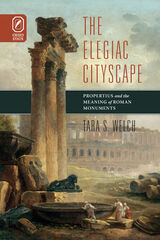
The Elegiac Cityscape explores Propertius’ Rome and the various ways his poetry about the city illuminates the dynamic relationship between one individual and his environment. Combining the approaches of archaeology and literary criticism, Tara S. Welch examines how Propertius’ poems on Roman places scrutinize the monumentalization of various ideological positions in Rome, as they poke and prod Rome’s monuments to see what further meanings they might admit. The result is a poetic book rife with different perspectives on the eternal city, perspectives that often call into question any sleepy or complacent adherence to Rome’s traditional values.
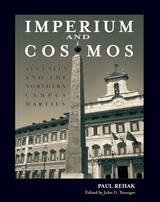
Rehak closely examines the artistic imagery on these monuments, providing numerous illustrations, tables, and charts. In an analysis firmly contextualized by a thorough discussion of the earlier models and motifs that inspired these Augustan monuments, Rehak shows how the princeps used these on such an unprecedented scale as to truly elevate himself above the common citizen.
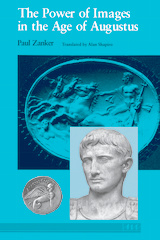

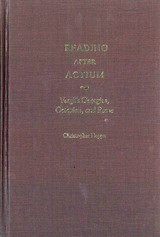
Reading after Actium is a study of Vergil's Georgics, a didactic poem ostensibly about farming but in fact a brilliant exercise challenging readers to develop a broader perspective on the basic problems and the dangers of human life. Octavian is treated as one of the poet's students and given the opportunity to learn lessons in handling power, in controlling Rome's vast resources, and in preventing the bloody cycle of civil war from beginning again. Most of all the Georgics asks Octavian to consider what is involved in assuming godlike power over his fellow citizens.
Reading after Actium provides an introduction to the history of scholarship surrounding the Georgics and the political questions surrounding Octavian and his career. Nappa gives a book by book analysis of the entire poem, and a conclusion that draws together the themes of the whole. Reading after Actium will appeal to students and critics of Vergil and other Augustan Literature as well as those of didactic poetry and its traditions. Students of Roman history and politics should read this as well.
Christopher Nappa is Assistant Professor of Classics at the University of Minnesota.
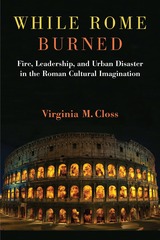
Working in the increasingly repressive environment of the early principate, Roman authors frequently employed “figured” speech and mythopoetic narratives to address politically risky topics. In response to shifting political and social realities, the literature of the early imperial period reimagines and reanimates not just historical fires, but also archetypal and mythic representations of conflagration. Throughout, the author engages critically with the growing subfield of disaster studies, as well as with theoretical approaches to language, allusion, and cultural memory.
READERS
Browse our collection.
PUBLISHERS
See BiblioVault's publisher services.
STUDENT SERVICES
Files for college accessibility offices.
UChicago Accessibility Resources
home | accessibility | search | about | contact us
BiblioVault ® 2001 - 2025
The University of Chicago Press



